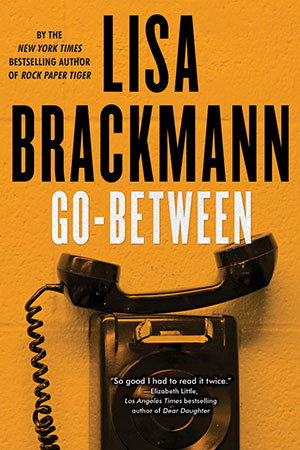Readers of Ben Winters’ Edgar-winning Last Policeman series know he is not afraid to tackle the Big Subject. Now, with the scathing but brilliant Underground Airlines, he has upped the ante. In the former trilogy he wiped out the entire human race. In this one, he may make readers wonder if an apocalypse might not actually be merciful.
Fair warning: this alternate history does not make for beach reading. Underground Airlines is set in an alternate America where president-elect Abraham Lincoln is assassinated before reaching the White House, and the Civil War is never fought. Rather, the North and South broker an agreement to preserve the Union and confine legal slavery to the “Hard Four” Southern states—while the North otherwise turns a blind eye to slavery’s horrors. The decades march by and the Hard Four plantations evolve into mega-corporations that deal in everything from bath towels to electronics—all produced by a slave economy.
In this not-so-brave new world, the word slave is no longer politically correct. In polite conversation, African Americans born in the Hard Four are referred to as “persons bound to labor,” or peeb for short. God help any peeb who dares to escape: he will be returned, then tortured, then sold into worse conditions than those he already endured. In order to “save the Union,” but in reality to keep prices low, federal policy is to return any escaped slave who is captured in the so-called “free states.” Many of the government agents tasked with policing escapees are themselves escaped slaves, maintaining their hard-won freedom only by hunting other escapees.
One such agent is Victor, an agent with 209 captures to his credit. Kept in check by an electronic tracker placed in his body, Victor has numbed himself to his morally repugnant job. He knows that if he refuses to work, he will himself be returned to the hellish Hard Four. But when he is ordered to hunt down a runaway named Jackdaw, Victor finds himself in the middle of the abolitionist movement and multiplying questions of conscience. Victor is fierce, brave, sly, and conflicted. By turns hero and villain, he is a man who will drag another man back into chains in order to save himself, yet he also repeatedly risks his freedom to help the book’s other key character, Martha. The tenderly drawn Martha Flowers is a white single mother with a mixed son sired by an escaped (and ultimately captured) slave. She is on a quest to find the man she loves, and after a chance meeting with Victor, her fate becomes entwined with his.
Alternate history novels are nothing new, but Winters does an exceptional job in Underground Airlines (a play on the Underground Railroad) of weaving brief portraits of real people and real institutions into his imagined world: the bondage of his brothers adds to Michael Jackson’s depression, Jesse Owens and James Brown are former slaves escaped to the freedom-loving arms of Canada. And many of the issues raised in Winters’ fiction are very real: maintaining low gas and energy prices at the cost of exploiting others, a belief that if an injustice does not happen to you or someone you love, it doesn’t count. Once again, Winters has given readers a moral think piece in the package of a suspense novel. To be sure, there is plenty of plot and action here, escape after escape, betrayal after betrayal, but ultimately, Underground Airlines asks hard questions about the human soul, questions that perhaps we should all be asking ourselves on a daily basis.

 Big-money politics, shell nonprofits, privately run prisons, shady government deals, and the cannabis trade come together in one wild ride.
Big-money politics, shell nonprofits, privately run prisons, shady government deals, and the cannabis trade come together in one wild ride.
